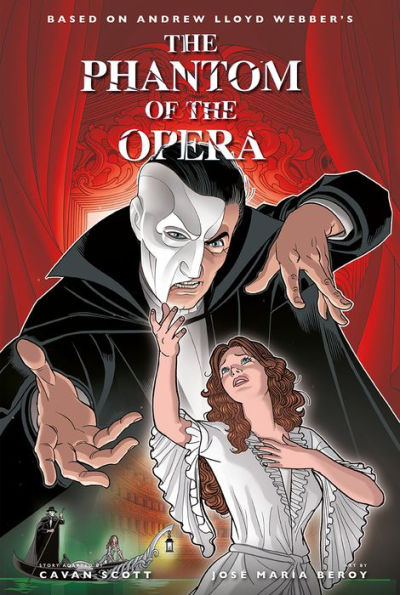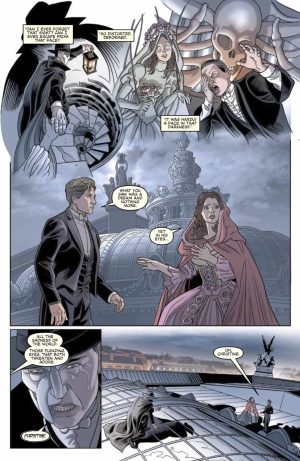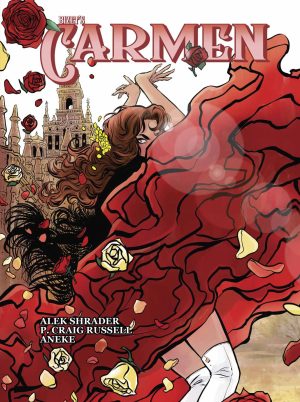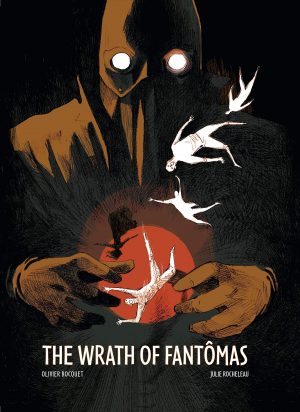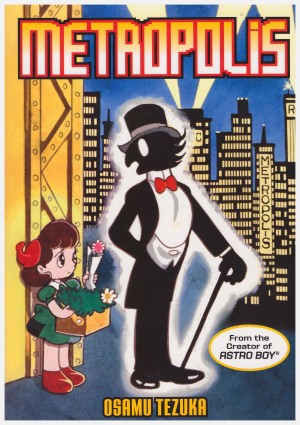Review by Frank Plowright
Originating as a novel by Gaston Leroux, The Phantom of the Opera as adapted for a stage musical has run continually since Andrew Lloyd Webber first presented his version in 1986. It’s a haunting story of persecution, yet at it’s heart is one of appreciation for the beauty of music and theatre.
The plot has the cast and crew of a new production terrorised by a masked figure obsessed with the leading soprano Christine. The initial problems are in the form of seeming accidents with tragedy only just averted before the Phantom reveals himself. Over the course of the story we learn who this person is, and the source of their obsession. While their methods prevent a complete transformation from menace into someone to be pitied, the audience is eventually given an understanding of torment.
This is a stunning artistic performance from José María Beroy, whose dalliance with English language comics has been sporadic, but who’s much admired in his native Spain for his attention to detail. There’s a wealth to look at on every incredibly designed page, and he brings home the theatricality of a musical performance, vividly creating costumes and sets. The bonus material supplies his beautiful designs. He’s also good when it comes to the staged spooky events and the eventual revelations of what’s a twisted romance.
Basing a graphic novel on anything musical runs into the immediate problem of comics not being a sound-oriented medium, while operas and theatrical musicals have their plots built around the showpiece tunes. However, almost the entire story being set in a theatre allows the curtain to be drawn back. Andrew Lloyd Webber’s music is what sells stage version of The Phantom of the Opera, but adapter Cavan Scott is also able to draw on Charles Hart’s under-rated lyrics and isolates the important moments to present from a long show.
At the end of the day the highest compliment available is that The Phantom of the Opera reads smoothly and looks great even if you’ve no affinity for the musical at all. Those who love Webber’s work should find this alternative version a real treat.
Further bonus material includes a section detailing the transformation from script to completed pages and Scott Matthewman’s exhaustive article giving the origins of the musical.
